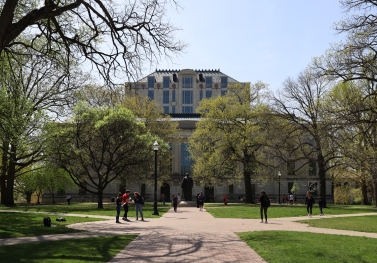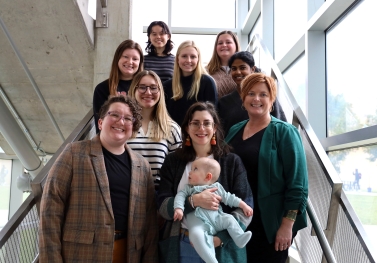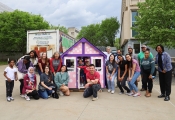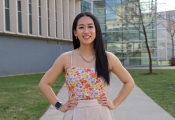Research to study childhood violence, tobacco cessation, dementia
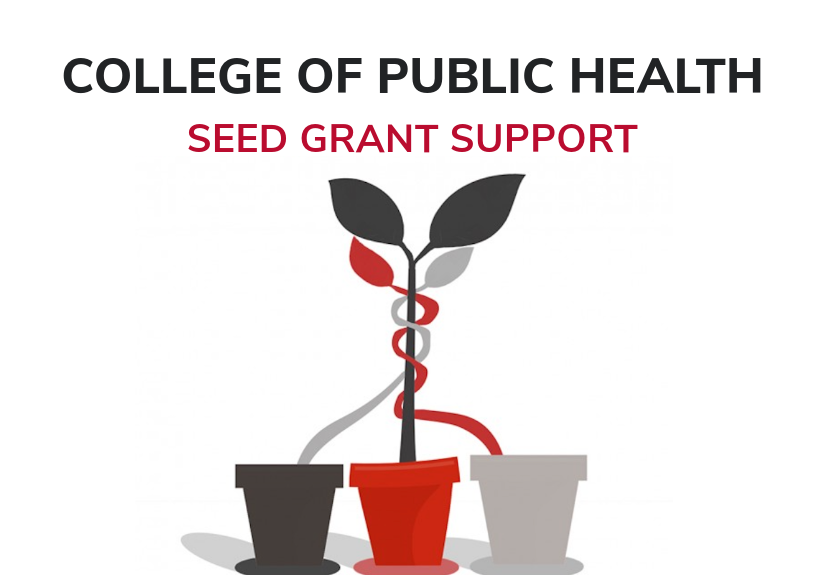
College of Public Health faculty were recently awarded $75,000 in seed funding to support new projects focused on understanding violence against children, tobacco cessation and dementia.
HB Franchino-Olsen, faculty fellow in the Division of Health Behavior and Health Promotion, received a $25,000 CPH grant for a pilot study investigating how children and adolescents in South Africa view and understand violence.
Joanne Patterson, assistant professor in the Division of Health Behavior and Health Promotion, received a $25,000 CPH grant to support her project co-designing culturally tailored health communications to promote tobacco cessation and quit line use among LGBTQ+ adults.
Jianyong Wu, assistant professor in the Division of Environmental Health Sciences, received $25,000 from college supporters Phyllis Cummins ’73 BS and Donald Dyche to pursue research on the impact of green space on dementia.
Seed grants support faculty as they collect critical preliminary data needed to secure external funding, said Maria Gallo, CPH associate dean of research.
“The CPH seed grant program is an exciting way to invest in faculty who want to engage in new lines of important inquiry to solve pressing public health problems,” Gallo said. “I’m excited to see the results of these projects and am proud of the faculty who are asking these important questions. Their projects will help improve the health of communities.”
Framing childhood violence
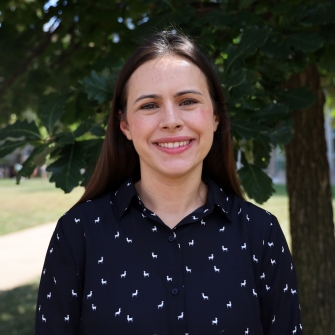
Researchers have spent decades studying the significant, long-term impact of violence in childhood, however, children and adolescent voices have largely been excluded from those studies, Franchino-Olsen said.
Building on work she started as a postdoctoral fellow, Franchino-Olsen will explore what children think and feel about violence in their lives and their community, and how their views are shaped by their experiences.
“We want to make sure that children’s voices are included and centered in the work we do,” Franchino-Olsen said. “Not asking adults about the kids, but talking to the kids themselves to understand what they conceptualize as violence and what they don’t.”
Seed grant funding will support data collection, fieldwork staff and social worker hiring and Franchino-Olsen’s travel to Acornhoek, South Africa. Rural populations in towns like Acornhoek are often excluded from research studies, Franchino-Olsen said.
The research team will connect with children and adolescents through age-appropriate activities like art projects and games. The aim is to empower youth to shape the research, programming and policy priorities for issues of violence that impact their lives.
Combatting tobacco use
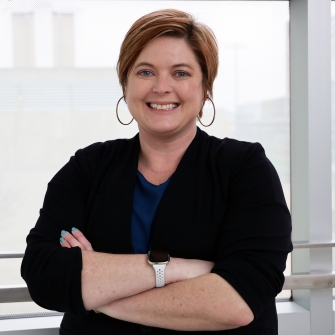
Patterson’s pilot project is focused on designing a health communication intervention that encourages tobacco cessation and quit line use among LGBTQ+ adults who currently smoke. The team will work alongside local LGBTQ community members and a community advisory board to identify culturally-relevant imagery and language, using artificial intelligence to develop authentic and effective communication prototypes.
“LGBTQ adults express interest in quitting at the same prevalence rates as non-LGBTQ people, and they make similar amounts of attempts to quit, but they are less successful,” Patterson said. “What’s concerning to me about this is the question of whether we’re actually getting LGBTQ folks the resources they need.”
Patterson is collaborating with co-principal investigator Maansi Bansal-Travers, associate professor, and Amanda Quisenberry, assistant professor, at Roswell Park Comprehensive Cancer Center in Buffalo, New York; and Sébastien Proulx, associate professor of design at the College of Arts and Sciences, to promote use of state tobacco quit line services in Ohio and New York. These evidence-based quit lines are free to use and operated by people trained in LGBTQ cultural competence.
Green space and dementia
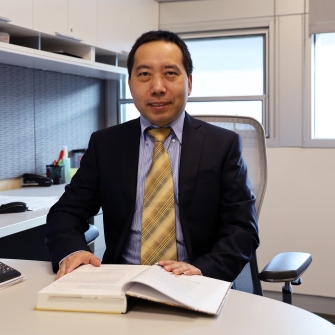
Research suggests that exposure to green spaces has a positive effect on cognitive health, but it’s unclear if it can delay the onset and progression of dementia. Using data from the National Alzheimer’s Coordinating Center, Wu will evaluate the link between green space and dementia under different environmental conditions.
According to the World Health Organization, more than 55 million people worldwide are living with dementia, which impacts memory and a person’s ability to engage in daily activities. Dementia is expected to be a growing public health challenge as global life expectancy rises.
“Given its public health impact, approaches to delay or prevent dementia are urgently needed,” Wu said. “The findings from this project could reveal the crucial environmental pathways of green space in delaying dementia, thereby informing strategies for dementia prevention and improving public health policies.”
Wu hopes the study will help determine what types of green space are most effective to delay dementia by reducing air pollution, noise or heat.

